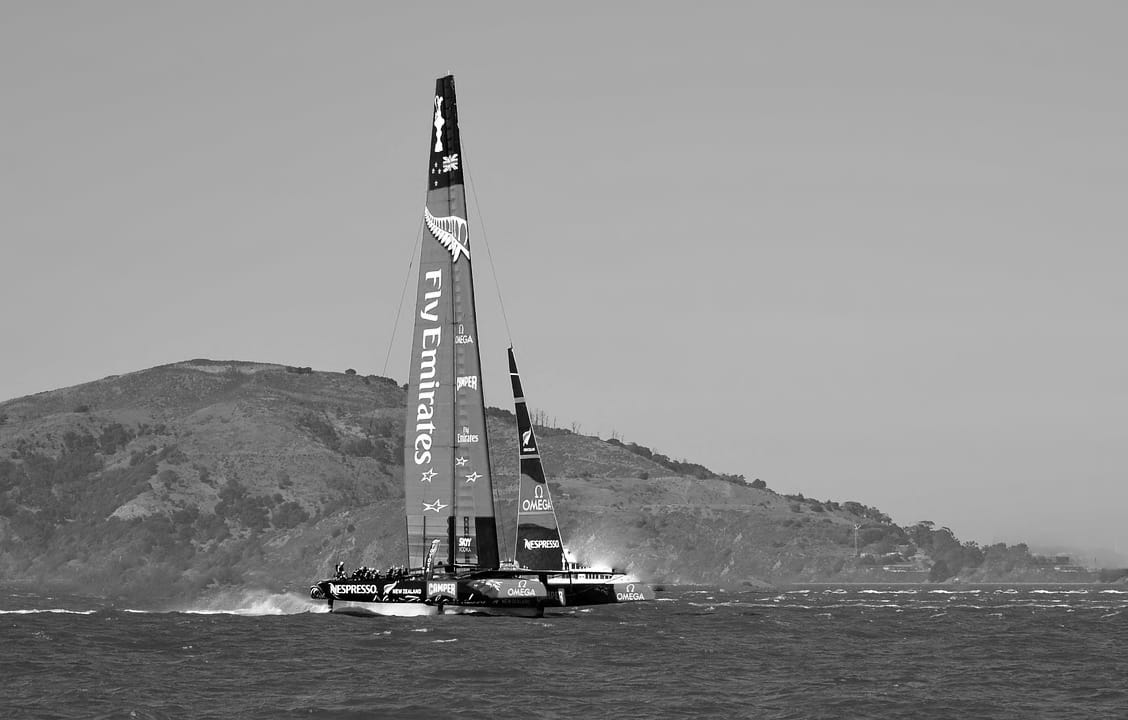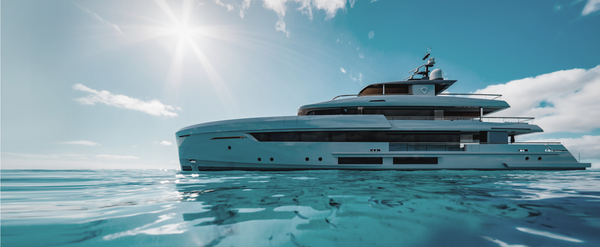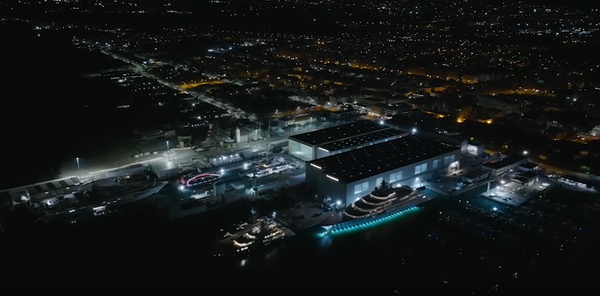Despite 2024's Viewership and Superyacht Wins, the America's Cup Faces Turbulence
With the next hosting venue set to be announced in June, the future looks murky for the world's oldest sporting competition.

A little over a month out, the focus should be on hyping an exciting hosting announcement — instead, recent developments have been tinged with dissent and disappointment, with INEOS Sport's bitter exit and the withdrawal of an all-time skipper. So what's going on?
The America's Cup is a prestige sport: teams are expensive to fund, and without regular broadcast events, there's a heavy reliance on sponsors, the appearance of exclusivity to impress and attract those sponsors, and the novelty of a championship that doesn't happen every year. Although it hasn't been expressly stated by anyone involved, the expense is a big part of the sport's current issues. These aren't normal sailing yachts, after all: they're specialty-built machines with high operating costs.
The Hosting Dilemma
Barcelona, the venue for the 2024 America's Cup, reportedly lost €3.5 million (currently, almost $4 million USD) playing host — though the port was cordial in reporting this, calling the reputation boost a net positive. Even so, the city declined to host the next contest, with the CEO of the winners, Emirates Team New Zealand, implying that Barcelona's infrastructure would need to be upgraded to host in the future. As prestige sports seek to expand their commercial appeal à la Formula One, this is a common through-line: the organizing bodies of these events only thrive if there's an appearance of luxury, which puts pressure on the host of an event to provide that appearance. A study of Barcelona's participation by the University of Barcelona also concluded that there was an overall positive impact, but they counted the city's broadcast hours and association with the sport as, essentially, an increase in brand recognition, which one might suggest is a flawed approach. (Was Barcelona an unknown backwater prior to 2024, particularly among America's Cup viewers?)
That was in October of 2024. Then, just last month, New Zealand — whose team won the Cup — declined to host, also, despite rumored positivity in Auckland. The stumbling block was the cost to taxpayers. Auckland hosted in 2021, recording a reported loss of $156 million NZD (about $90 million USD), though much of that was blamed on the pandemic. A loss of $70 million in taxpayer funds disappointed the previous host Bermuda, and San Francisco, the 2013 host, lost $5 million. Organizers and enthusiasts continue to tout the overall positive impact through reputation-polishing and investments, but it's not hard to see why prospective hosts would be skeptical, given the event's recent history.
The Audience Dilemma
The push to expand the America's Cups commercial value may be butting heads with the sport's own needs — as evidenced just this week by Emirates Team New Zealand's parting ways with their three-time champion skipper, Peter Burling.
Only six teams competed in the 2024 contest, a direct function of the cost of funding a team. INEOS Sport, which funded (and had naming rights) for the United Kingdom's team, announced its exit from the sport this week after two failed bids for the win. Given the costs involved, backers expect results — and the only team to continually deliver is New Zealand. Why, then, fund a team if the winner already seems decided?
The ostensible answer is brand exposure and marketing attribution: after all, the last America's Cup attracted almost a billion total TV viewers, and — perhaps more importantly — a strong association with luxury. The America's Cup Superyacht Program was developed with the specific intent of courting the owners of eye-catching yachts, and in 2024, it was stunningly successful: 261 (!) superyachts took advantage of the program's reserved premium viewing locations and VIP social calendar. That's tough to beat, from a marketing perspective — although yacht owners certainly attend the Super Bowl, for example, only a small handful of superyachts were spotted around New Orleans the week of the game.
Still, luxury sponsors hardly pin all their advertising hopes on one championship, and even Emirates doesn't wholly fund their triple-champion team. On top of that, challengers face headwinds every year, with winners deciding the terms of the next contest — which, of course, gives them a massive time advantage. Sailors have families to support, too, which puts pressure on their teams to offer them better terms, which is speculated to be one of the reasons for New Zealand's loss of their skipper.
More teams and broader audience awareness and engagement could bring more excitement, more viewers, and more commercialization — but the sport has a complex path ahead to make their competitors, their hosts, their broadcast audience, and their in-person audience all happy.






